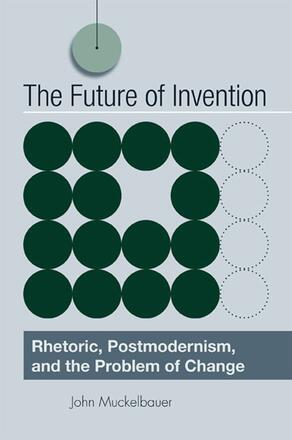
The Future of Invention
Rhetoric, Postmodernism, and the Problem of Change
Alternative formats available from:
Examines the concept of rhetorical invention from an affirmative, nondialectical perspective.
Description
The Future of Invention links classical rhetorical practices of invention with the philosophical work of Gilles Deleuze and Jacques Derrida and proposes that some of the most crucial implications of postmodern theory have gone largely unattended. Drawing on such classical rhetorical concepts as doxa, imitation, kairos, and topos, and engaging key works by Aristotle, Plato, the Sophists, and others, John Muckelbauer demonstrates how rhetorical invention can offer a nondialectical, "affirmative" sense of change that invites us to rethink the ways in which we read, write, and respond to others.
John Muckelbauer is Assistant Professor of English at the University of South Carolina.
Reviews
"Muckelbauer is lucid and compelling both as he reflects on the reasons that dialectal change and oppositional postmodernism can feel a lot like stagnation and spinning wheels, and as he identifies the questions that must be addressed in order to move toward a more real and realistic model of change." — JAC
"This is perhaps the most interesting and innovative (inventive) book on rhetorical invention I've encountered since Deleuze's What Is Philosophy? Muckelbauer not only contributes to but also fundamentally alters the conversation on this topic. He manages something that is almost nonexistent in the field—to read (to follow textual traces, openings, potentialities) rather than simply to interpret. Most studies in rhetorical invention, until now, have been mired in a host of humanist presumptions about the thinking/inventing subject—this work offers a serious challenge to that approach, not by arguing with it but by performing something very different." — Diane Davis, author of Breaking up [at] Totality: A Rhetoric of Laughter
"This book contains a wealth of inventive approaches to important issues in both postmodern theory and the field of rhetorical studies. Muckelbauer argues for and offers an original style of engagement with these issues that transforms scholarly discourse on invention." — Bradford Vivian, author of Being Made Strange: Rhetoric beyond Representation